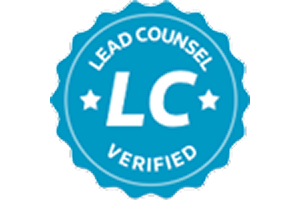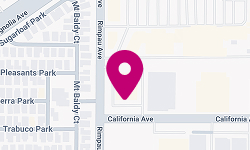- Free Consultation: (888) 883-6588 Tap Here To Call Us
California’s Protections For Whistleblowers: How To Report Unlawful Practices Without Fear

Reporting illegal activities in the workplace can be intimidating, especially when retaliation is a real concern. Many employees witness fraud, safety violations, wage theft, or other misconduct but hesitate to come forward out of fear of losing their jobs or facing other negative consequences. California has some of the strongest whistleblower protections in the country, ensuring that employees who report wrongdoing are shielded from retaliation. Both federal and state laws provide legal protections and potential compensation for those who expose unlawful business practices. Understanding your rights before taking action is critical to safeguarding your career and personal well-being.
California’s Whistleblower Protection Laws
California law provides broad protections for employees who report legal violations, unsafe conditions, or fraudulent activities. California Labor Code § 1102.5 prohibits employers from retaliating against employees who report violations of state or federal laws to government agencies, law enforcement, or internal supervisors. The law also protects employees who refuse to participate in illegal activities.
If an employer retaliates against a whistleblower, they may face civil penalties, reinstatement orders, back pay, and damages. California also protects employees from retaliation even if the reported conduct is ultimately found to be legal, as long as the employee had a reasonable belief that a violation occurred.
Federal Protections For Whistleblowers
Federal laws also protect employees who report violations of workplace laws, environmental regulations, securities fraud, or government contract fraud. Some of the most important federal whistleblower laws include:
- The Whistleblower Protection Act (5 U.S.C. § 2302) – Protects federal employees from retaliation for reporting misconduct within government agencies.
- The Sarbanes-Oxley Act (18 U.S.C. § 1514A) – Shields employees of publicly traded companies who report securities fraud or shareholder deception.
- The False Claims Act (31 U.S.C. § 3730(h)) – Allows whistleblowers to file lawsuits on behalf of the government against companies that defraud federal programs.
- The Occupational Safety and Health Act (OSHA) (29 U.S.C. § 660(c)) – Protects employees who report unsafe working conditions.
Many federal whistleblower laws also provide financial incentives, allowing whistleblowers to recover a portion of any funds recovered through enforcement actions.
How To Report Workplace Violations
California whistleblowers have several options for reporting misconduct. The most appropriate reporting method depends on the nature of the violation:
- Internal Reporting – Some employees choose to report violations to their employer’s compliance department or human resources before involving outside agencies. If an employer has a history of retaliation, direct reporting to a government agency may be safer.
- Government Agencies – Employees can report violations to agencies such as the California Division of Occupational Safety and Health (Cal/OSHA), the California Labor Commissioner’s Office, or the U.S. Securities and Exchange Commission (SEC).
- Qui Tam Lawsuits – Under the False Claims Act, whistleblowers who report fraud against government programs may file lawsuits on behalf of the government and potentially receive a portion of any recovered funds.
Each reporting avenue has different requirements and legal protections, so consulting an attorney before proceeding is often advisable.
Legal Remedies For Whistleblower Retaliation
If an employer retaliates against a whistleblower, California law provides strong legal remedies. Under California Labor Code § 1102.5, a whistleblower who experiences retaliation may be entitled to:
- Reinstatement – If an employee was wrongfully terminated, the court may order their reinstatement.
- Back Pay And Lost Wages – Compensation for lost income and benefits due to retaliation.
- Compensatory And Punitive Damages – Payment for emotional distress, reputational harm, and punitive damages in cases of egregious retaliation.
Additionally, employees may seek protection under California Government Code § 8547, which protects public employees who report misconduct within state agencies.
Steps To Protect Yourself As A Whistleblower
Whistleblowers can take steps to strengthen their case and protect their rights before reporting violations. These include:
- Documenting Evidence – Keeping records of emails, memos, witness statements, and other proof of misconduct can be crucial in a legal case.
- Following Internal Policies – If possible, using an employer’s whistleblower complaint process may help establish a “good faith” effort to address the issue.
- Seeking Legal Guidance – Consulting with an attorney can help ensure that reports are made correctly and that legal protections are in place.
Whistleblower FAQs
What Qualifies As Whistleblower Retaliation Under California Law?
Retaliation occurs when an employer takes adverse action against an employee for reporting unlawful conduct. This can include termination, demotion, pay reduction, workplace harassment, or negative performance reviews that are meant to punish the employee. Under California Labor Code § 1102.5, whistleblowers are legally protected from these actions.
Can I Be Fired For Reporting Illegal Activity At Work?
No, firing an employee for reporting workplace violations is illegal. If an employer terminates an employee in retaliation for whistleblowing, the employee can file a wrongful termination lawsuit and seek damages, including back pay and reinstatement.
What Should I Do If My Employer Threatens Me For Reporting Misconduct?
If an employer threatens retaliation, it is important to document the threat and seek legal advice. California law prohibits retaliation, and a whistleblower may have grounds for legal action even if the employer does not follow through on the threat.
Do I Have To Prove That My Employer Broke The Law To Be Protected As A Whistleblower?
No, whistleblower protections apply as long as the employee has a reasonable belief that a violation occurred. Even if the employer is ultimately found to be in compliance, the employee is still protected under California Labor Code § 1102.5.
What Agencies Handle Whistleblower Complaints In California?
Whistleblower complaints can be filed with several agencies, depending on the type of violation. The California Labor Commissioner’s Office handles workplace violations, while Cal/OSHA investigates safety concerns. Securities fraud is reported to the Securities and Exchange Commission (SEC), and fraud against government programs is reported under the False Claims Act.
How Long Do I Have To File A Whistleblower Retaliation Claim?
The time limit to file a whistleblower claim depends on the specific law being used. Under California Labor Code § 1102.5, employees generally have three years to file a retaliation claim. Federal laws may have different statutes of limitations, so speaking with an attorney can help clarify deadlines.
Can I Remain Anonymous When Reporting Violations?
Some agencies allow anonymous reporting, particularly in cases of fraud. However, in retaliation claims, employees typically need to disclose their identity to pursue legal action. Confidential consultations with an attorney can help determine the best course of action.
What Financial Compensation Can A Whistleblower Receive?
Under the False Claims Act, whistleblowers who report fraud against the government may receive 15% to 30% of the recovered funds. In retaliation cases, employees may recover back pay, compensatory damages, and punitive damages.
Can A Whistleblower Be Penalized If The Report Turns Out To Be Incorrect?
No, as long as the whistleblower had a reasonable belief that a violation occurred, they are protected under the law. However, knowingly making false claims can lead to legal consequences.
How Can An Attorney Help With A Whistleblower Case?
An attorney can help whistleblowers report violations correctly, protect them from retaliation, and pursue legal action if their rights are violated. Legal representation is critical for securing compensation and holding employers accountable.
Call Our California Whistleblower Attorney For A Free Consultation
Speaking out against unlawful business practices takes courage, but California law ensures that whistleblowers are protected from retaliation. If you have witnessed misconduct in your workplace, taking legal action may not only protect your job but also help prevent further violations. Understanding your rights under state and federal whistleblower laws is the first step toward making an informed decision.
Contact our California whistleblower attorney at Law Office of Joseph Richards, P.C. today by calling (888) 883-6588 to schedule a consultation. We represent clients throughout the state of California.
























